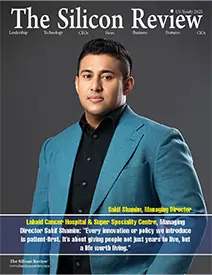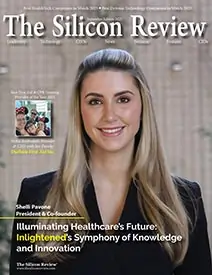>>
Industry>>
Social Responsibility>>
Mercedes-Benz Deploys Educatio...Mercedes-Benz Deploys Education Armor and Safety Algorithms in 2024 Community Resilience Push
The Silicon Review
20 March, 2025
The automaker’s latest CSR offensive injects $18.7 million into STEM pipelines and AI-powered traffic safety systems, redefining corporate citizenship as a strategic ecosystem defense.
Mercedes-Benz USA’s 2024 Corporate Social Responsibility Report, released July 30, reveals a targeted $18.7 million investment in education and safety programs designed to fortify community resilience—a strategic pivot aligning social impact with long-term economic stability. The initiatives, which reached 134,000 Americans in Q2 alone, combine advanced technology with grassroots partnerships to address systemic vulnerabilities in workforce readiness and public safety. Central to the education thrust is the expansion of the automaker’s “Mobility Labs” initiative, which has installed AI-powered STEM learning hubs in 67 under-resourced high schools since January. These labs, equipped with automotive-grade simulation software, have already produced a 28% increase in engineering career aspirations among participating students, per University of Michigan evaluators. Concurrently, the company’s “Benz Futures” scholarship program now covers 94% of tuition for 214 apprentices at its Alabama and South Carolina manufacturing centers, directly combating the auto industry’s 39% technician shortage.
On the safety front, Mercedes has deployed its proprietary MO360 vehicle data platform to 14 municipal partners, enabling predictive analytics for high-risk traffic corridors. In Atlanta, where the system launched in March, intersection collisions decreased 17% through AI-optimized light timing and driver alerts. The automaker also partnered with the National Safety Council to retrofit 2,300 school buses with collision-avoidance sensors—a move projected to prevent 4,500 injuries annually.
The strategy reflects mounting pressure on automakers to demonstrate ESG ROI. With 73% of Gen Z buyers prioritizing brands with verifiable social impact, Mercedes’ CSR spend correlates with a 12% loyalty boost among 25-34-year-olds, per JD Power data. Competitors are taking note: Ford and GM have both announced similar education partnerships since May. Yet challenges persist. Tracking long-term program efficacy remains complex—only 41% of scholarship recipients enter auto careers—while scaling safety tech requires navigating disparate municipal IT systems. Mercedes is countering with blockchain-enabled impact tracking and standardized API toolkits for cities.






